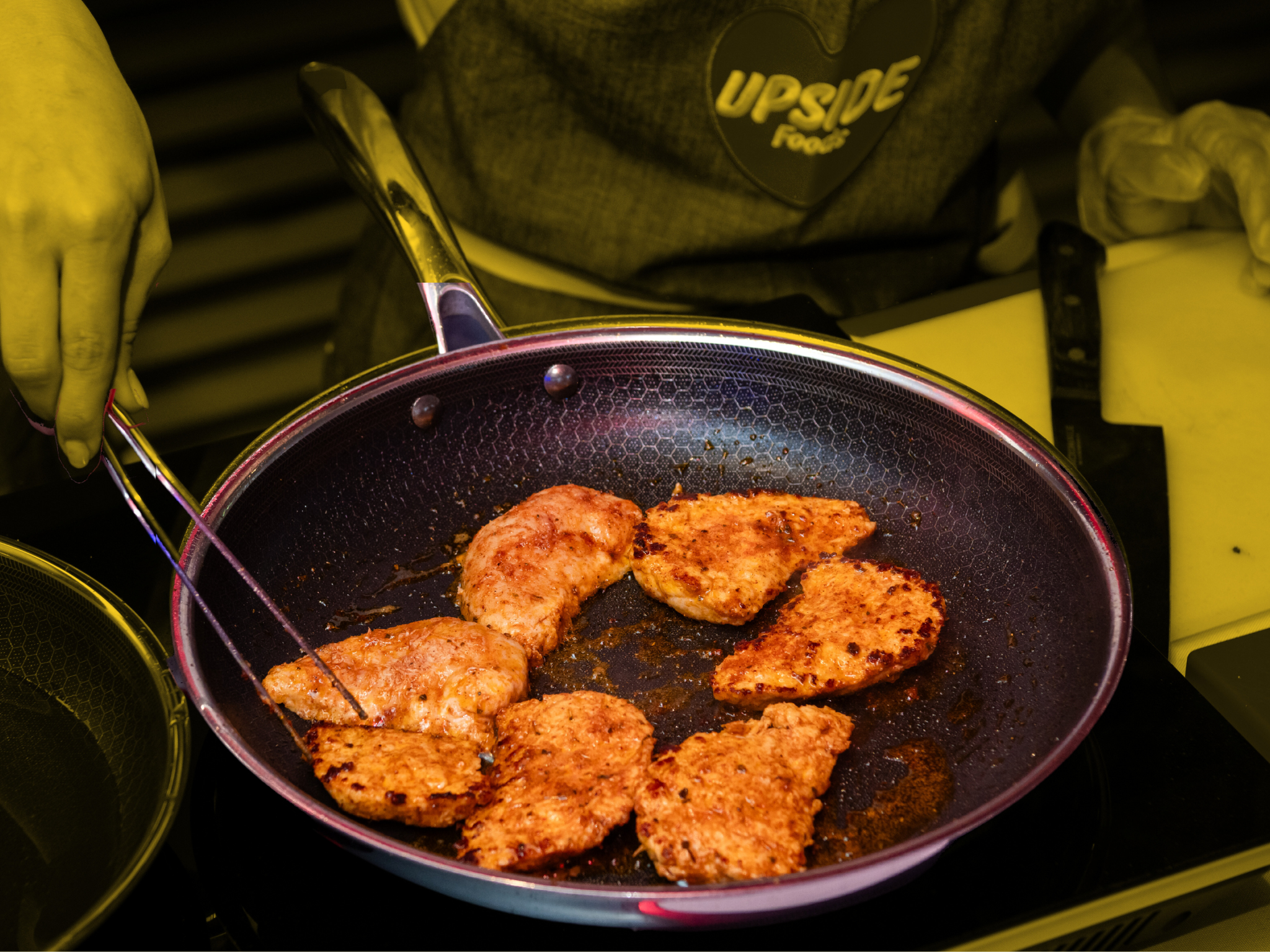
California’s Upside Foods has filed a lawsuit against the state of Florida over its ban on cultivated meat, and is asking the federal court for an injunction. Here’s what happened, and what’s to come.
Forty-two days after Florida decided to outlaw the sale and production of cultivated meat, the state is now facing a lawsuit over the ban.
Californian cultivated chicken startup Upside Foods has filed a legal complaint in the US District Court for the Northern District of Florida, calling Florida’s SB 1084 “unconstitutional”.
Announced on May 1 by governor Ron DeSantis, the legislation made it a second-degree misdemeanour to manufacture, transport, commercialise or sell cultivated meat within Florida’s borders. Penalties included up to $5,000 in fines, 60 days in jail, and businesses having their licenses revoked.
“What we’re protecting here is the industry against acts of man, against an ideological agenda that wants to finger agriculture as the problem, that views things like raising cattle as destroying our climate,” DeSantis said at the time, labelling it a battle against “the global elite’s plan to force the world to eat meat grown in a petri dish or bugs to achieve their authoritarian goals”.
But Paul Sherman, senior attorney at the Institute of Justice, which is leading the case for Upside Foods, said the ban had “nothing to do with protecting public health and safety”. “Florida’s law is a transparent example of economic protectionism. It was passed following intense lobbying by cattle interests, and its protectionist purpose was no secret,” he said in a press conference.
So what are the grounds for Upside Foods’ lawsuit? And what happens next? Here’s everything you need to know.
Why Upside Foods is challenging Florida’s ban
As one of two companies approved to sell cultivated meat in the US, Upside Foods has been offering Americans a taste of its chicken for over a year now. What started as a residency on the menu of Dominique Crenn’s Bar Crenn has since evolved into tastings at various public events throughout the US.
These included the Industry Only Potluck in Las Vegas, TED Countdown Dilemma: Food in New York, and South by Southwest (SXSW) in Texas. In fact, four days before Florida’s ban, the startup hosted a Freedom of Food Pop-Up in Miami, in partnership with local chef Mika Leon.
But this wasn’t the only event Upside Foods was planning in Florida. It had teamed up with local chefs to showcase its cultivated chicken at the Art Basel fair in Miami in December, and host a tasting at the South Beach Wine and Food Festival in the state capital next February.
The chef who was working on the Art Basel activation had also planned to offer the cultivated chicken at her restaurant, aiming to make it available to diners on a limited basis by the first quarter of 2025. Upside Foods had additionally identified chefs in Miami and Tallahassee who were interested in collaborating with the brand.
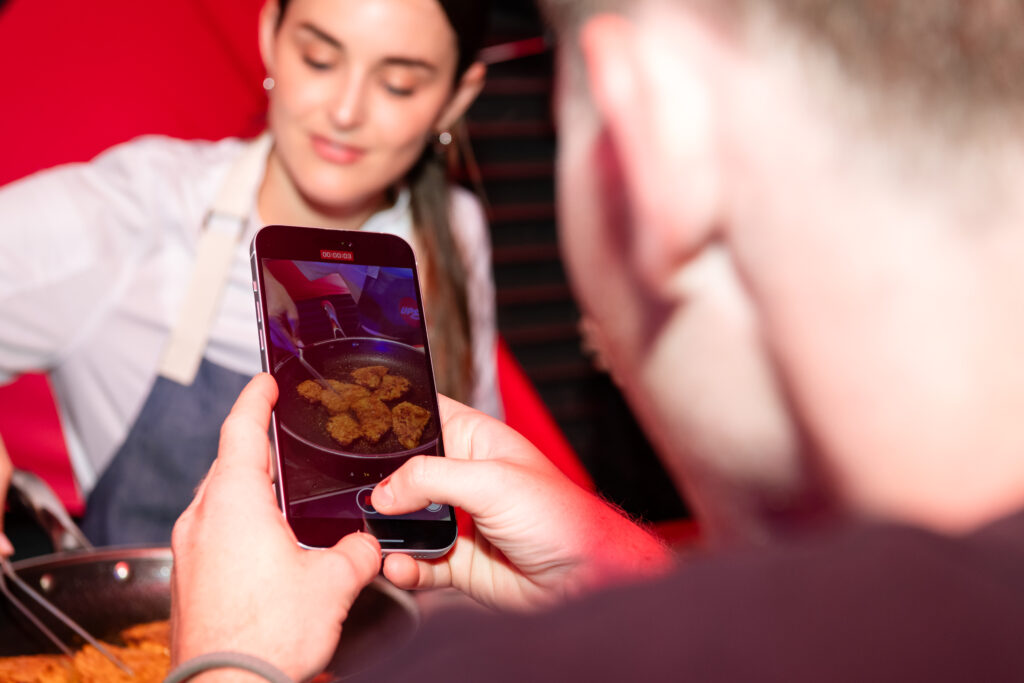
“Florida is the third-largest economy in the US, which is why every CPG sees Florida as an important market,” Sean Edgett, chief legal officer at Upside Foods, tells Green Queen. “We know that ‘tasting is believing’ – giving consumers in every market the opportunity to try our product is hugely important to our future.”
He adds: “We had great feedback from our June 2023 Miami pop-up with Chef Mika Leon and hope to be able to continue that partnership in the future. However, for now, all plans for Florida are on hold.”
“Under the ban, tasting events like these are a crime. If Upside were to distribute its product in Florida, it would expose itself and the local chefs and food establishments with which it wishes to partner to civil and criminal penalties as well as the embargo and destruction of its products,” the complaint reads.
Upside Foods argues that the ban blocked “critical and irreplaceable opportunities” to grow the nascent cultivated meat market: “Upside is enduring ongoing harm in the form of lost revenue, missed business and promotional opportunities, reputational damage, and loss of consumer goodwill.”
The legislation also makes it harder for the startup to partner with restaurant groups. “Florida is the headquarters of the world’s largest full-service restaurant company [Darden Restaurants] and one of the largest quick-service restaurants in the country [Burger King], both of which are key long-term customer targets of Upside’s,” the plaintiff notes.
What makes Florida’s ban unconstitutional?
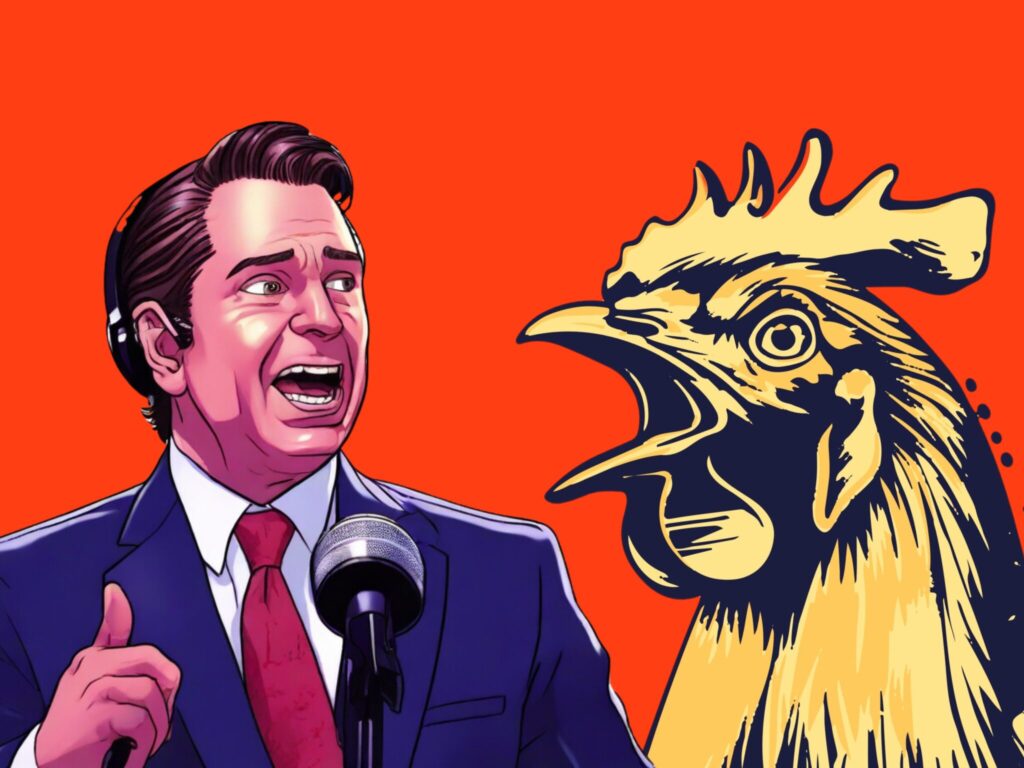
The Institute of Justice has invoked two provisions of the US Constitution: the Commerce Clause and the Supremacy Clause.
Under the Commerce Clause, the federal government has exclusive power to regulate interstate commerce. States have limited power to interfere with or discriminate against here. “Florida’s ban does just that,” argues Institute of Justice attorney Suranjan Sen, also counsel to Upside Foods.
The state violates the Commerce Clause because its “intended purpose and practical effect is to shield in-state commercial interests from interstate competition”, he explains.
“Floridians have the right to enjoy a free-flowing market of interstate goods and services; they have a right to make an informed choice as to whether these products are right for themselves and their families; and Florida cannot shield itself from the interstate market without good reason,” Sen tells Green Queen.
“There is no such good reason here, in part because these products are safe to eat, and they are heavily regulated and inspected by the USDA and FDA – just like conventional meat.”
And the decision by two federal departments to allow Upside Foods to sell products in the interstate market supersedes any contrary state laws, as outlined in the Supremacy Clause.
“Congress long ago passed the Federal Meat Inspection Act and the Poultry Products Inspection Act, which grant the USDA and FDA the authority to set up a nationwide regulatory regime for meat products, a regime that expressly preempts state laws to the contrary (because 50 different regulatory regimes would frustrate a nationwide market),” explains Sen.
Introducing different ingredient or manufacturing requirements is therefore prevented by these acts. “Essentially, the federal government has said that cultivated chicken cells produced at Upside’s facilities can be used in poultry products, and the state of Florida is saying that they can’t. The state simply doesn’t have that power,” Sherman added in the press conference.
Who are the defendants?

The defendants in the lawsuit are Florida agriculture commissioner Wilton Simpson, attorney general Ashley Moody, as well as state attorneys Jack Campbell (from the Second Judicial Circuit), Bruce Bartlett (Sixth Judicial Circuit), Andrew Bain (Ninth Judicial Circuit), and Katherine Fernandez Rundle (Eleventh Judicial Circuit).
“The lawsuit is ridiculous,” Simpson said in a statement. “Lab-grown ‘meat’ is not proven to be safe enough for consumers and it is being pushed by a liberal agenda to shut down farms. Food security is a matter of national security, and our farmers are the first line of defence.”
He added: “As Florida’s Commissioner of Agriculture, I will fight every day to protect a safe, affordable, and abundant food supply. States are the laboratory of democracy, and Florida has the right to not be a corporate guinea pig. Leave the Frankenmeat experiment to California.”
“The states simply do not have the power to wall themselves off from products that have been approved by the USDA and the FDA,” Sherman said when asked to respond to Simpson’s comments. “And if consumers don’t like the idea of cultivated meat, there’s a simple solution. They don’t have to eat it, but they can’t make that decision for other consumers.”
Uma Valeti, co-founder and CEO of Upside Foods, stressed that cultivated meat is a “complement, not competition” to conventional meat. The current methods of meat production are unsustainable – there’s simply not enough land, water or resources to meet the needs of a 10-billion-strong population.
“What cultivated meat is doing is putting choice of having animal-based foods on the table and not having to ration in the future,” Valeti said.
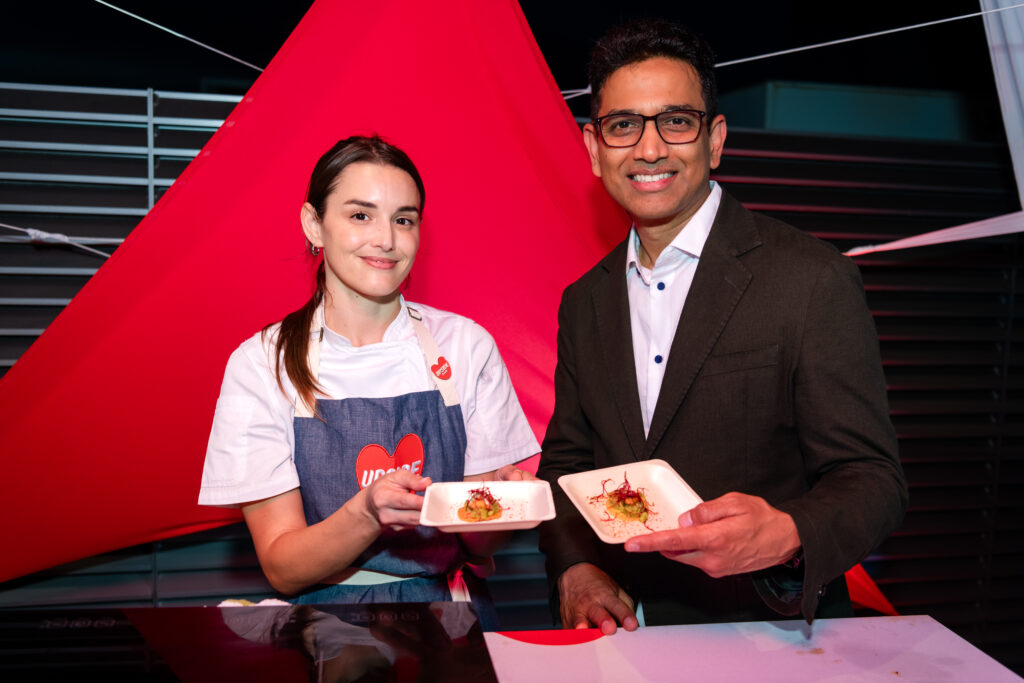
Recalling the legislative debate that led to the ban, he said it was a “very surreal moment”, likening it to what the world looked like hundreds of years ago, when people challenged “nearly every transformative innovation that came into the world, and innovators had to fight and fight and fight”.
“I felt like I was watching an old boys’ club trying to have a privileged group protected and protecting an incumbent industry. I just couldn’t believe that was happening at this day and age.”
Are there any legal precedents for Upside Foods’ case?
Yes, there are. In 2011’s National Meat Association v Harris, the US Supreme Court unanimously invoked the Supremacy Clause to strike down a California law aiming to restrict meatpackers and processors from handling nonambulatory pigs (who can’t bear weight on their legs or walk without support).
This legislation was found to be “exceeding or conflicting with requirements under the Federal Meat Inspection Act”, notes Sen.
Meanwhile, in 1977’s Hunt v Washington State Apple Advertising Commission, the Supreme Court invoked the Commerce Clause to abolish a North Carolina legislation that required apples to be sold with no grade identification other than USDA grading.
While neutral on the surface, this law “operated to disfavour apples from other states” that could boast grades higher than the UDSA grades.
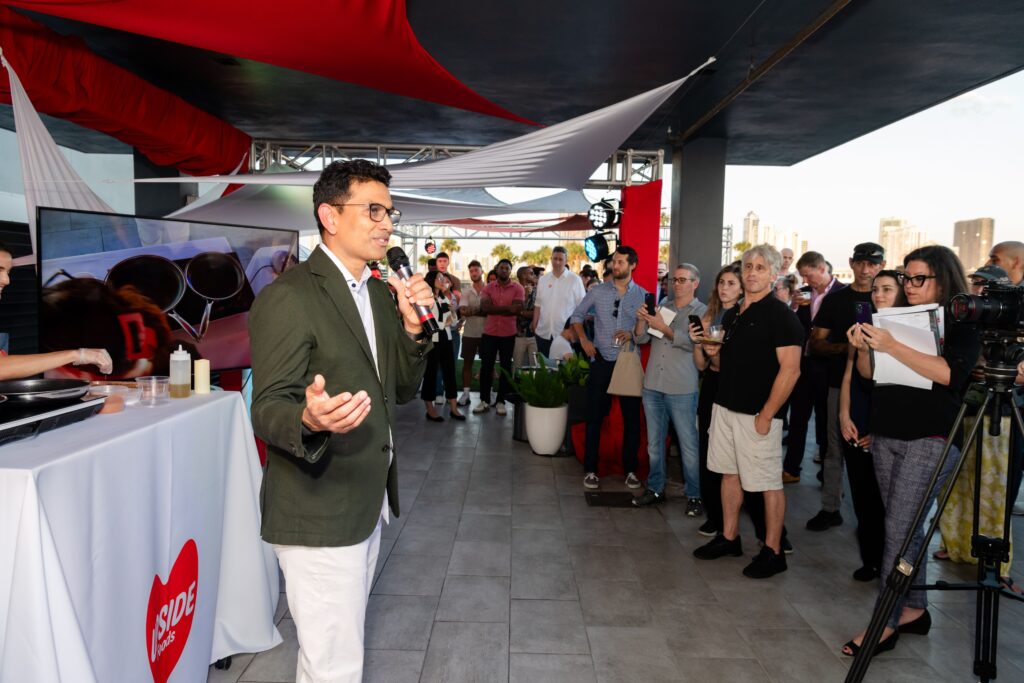
What about Alabama’s ban, and what happens next?
The Institute of Justice is asking the court to declare that Florida’s ban violates the constitutional clauses, and grant an injunction preventing the state from enforcing it.
While the lawsuit moves forward, the Institute of Justice will be filing for a preliminary injunction to allow Upside Foods to continue to sell its cultivated chicken in Florida. “The rules state that we must first confer with Florida’s attorneys, which we hope to do this week,” says Sen.
“Once we file that motion, the timeline will largely be in the judge’s hands. That said, the immediate impetus for the preliminary injunction would be so that Upside can host a tasting event in Miami this December at the Art Basel festival, so hopefully we should get a result by then,” he adds.
Just a week after Florida’s ban in May, neighbouring state Alabama also decided to outlaw cultivated meat, but this comes into effect on October 1. According to the legal filing, “officials in Arizona, Kentucky, Iowa, Michigan, New York, Pennsylvania, Tennessee, Texas and West Virginia” have also introduced similar proposals.
“We see these types of bans as a harbinger of what might come when a small set of people try to make laws and rules on what common Americans and Floridians can eat,” said Upside Foods’ Valeti.
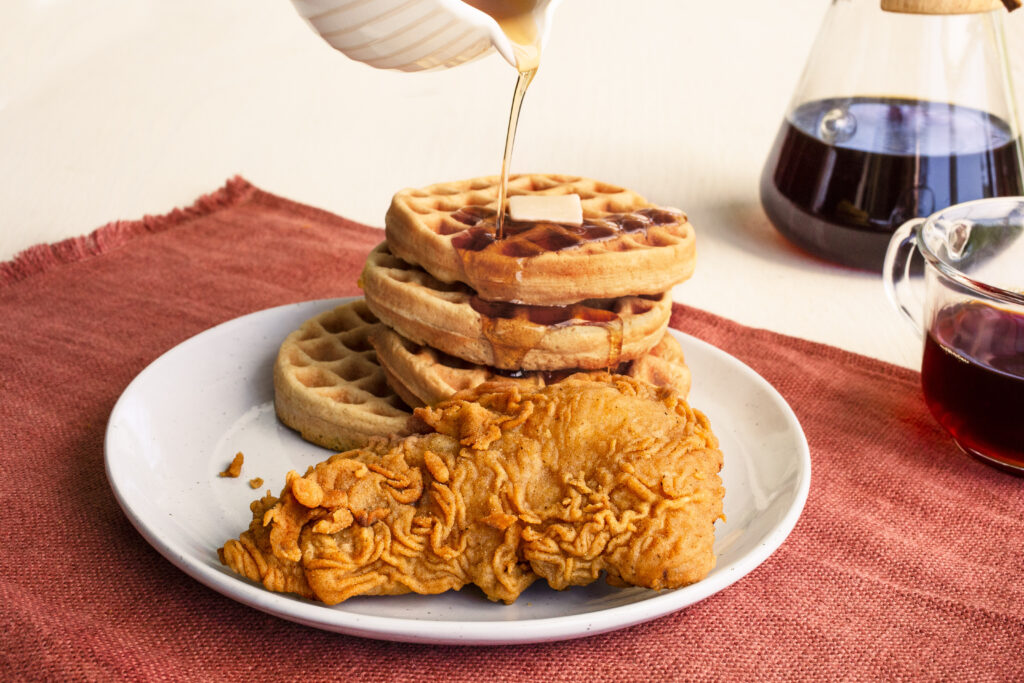
“Alabama’s ban is similarly unlawful, as are other efforts to kill a new and innovative industry for the sake of shielding entrenched in-state commercial interests,” says Sen. Since Florida’s law is already in place, the lawyers decided to challenge this first. But he says the Institute of Justice is “not averse to challenging other bans”.
He adds: “Alabama is in the same federal circuit court of appeals as Florida (the Eleventh Circuit). Therefore, the precedent from a victory in this case would likely apply to Alabama as well.”
Upside Foods is among the most well-capitalised startups in the cultivated meat sector, having raised $608M to date. But a lack of investment in the overall industry and two rounds of layoffs in 2024, combined with these legislative challenges, have dented progress.
However, while it has paused its plans for tastings in Florida for now, the company is planning on distributing its cultivated chicken at events in Los Angeles and Chicago next month.
The post Everything You Need to Know About Upside Foods’ Lawsuit Against Florida’s Cultivated Meat Ban appeared first on Green Queen.
This post was originally published on Green Queen.